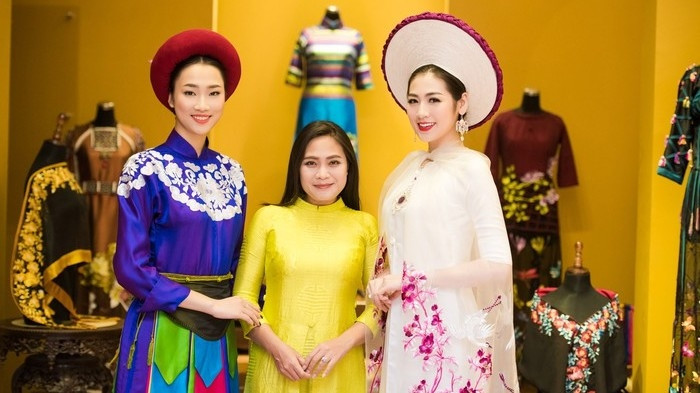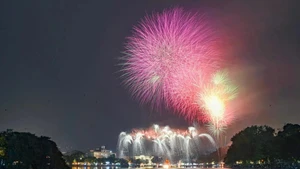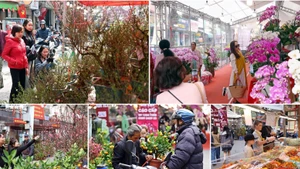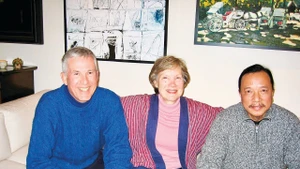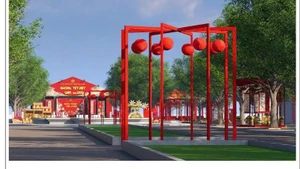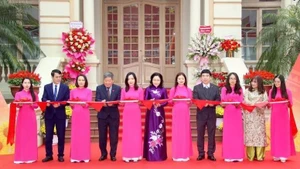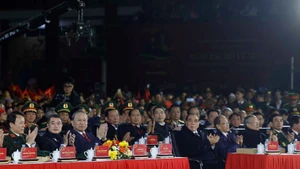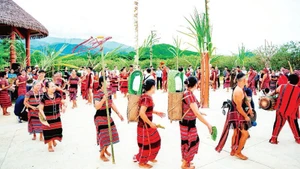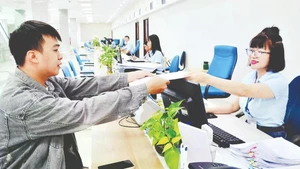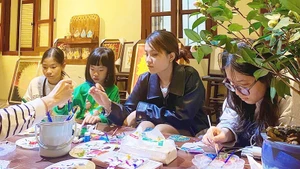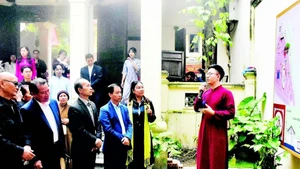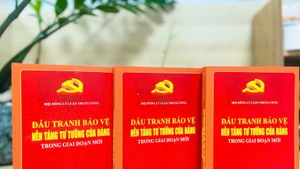Huong said that, although the Thai ethnic group in Nghe An province have developed a unique weaving method using silk and cotton, their products are not widely marketed to customers.
Therefore, she invited the locales to adopt their weaving method in her Ao Dai outfits with a hope that her designs would help to tell an interesting side of the indigenous culture of Thai people to customers.
In the same effort to promote the charm of Vietnamese ethnic groups’ culture, during her visit to A Luoi mountainous district in the central province of Thua Thien – Hue, Huong had the locales weave their traditional and characterise patterns on her textile fabrics, which she then brought home for her Ao Dai designs.
When she gave feedback from her outcomes to the locals, they were surprised at the way their pieces of weaving were combined with Ao Dai creations.
Following the success of the two working trips, Huong has also visited weaving villages of the H’mong ethnic people in Bac Ha district, Lao Cai province, and Dong Van district, Ha Giang province, to create similar orders with the locals.
In addition to displaying samples of traditional Vietnamese Ao Dai, her fashion house in Hanoi’s Tay Ho district also introduces to visitors how to apply the art of brocade weaving, the Dong Ho and Hang Trong folk paintings in the design and how to make an Ao Dai.
Thanks to Huong, products from these traditional weaving villages have become more marketable, contributing to improving the locals’ income.
Over the past few years, Lan Huong has also visited traditional crafts in suburban areas in Hanoi, as well as those located in the mountainous areas in the northern and central regions, to join hand with the local residents in reviving their long-standing practices, such as silver carving, embroidery, and footwear making.
Huong has brought her Ao Dai collections to many countries around the world, including the Hotel de ville de Paris (Paris Municipal Administration), as well as museums in New York and Berlin, among other fashion stages at home and abroad.
She shared that she wanted to introduce products which were totally made manually by Vietnamese people, using 100% Vietnamese materials, to international friends.
Her collections have received a lot of compliments and acknowledgement from many foreign designers and they even asked her to take them to the traditional craft villages to make orders for their own products.
In December 2016, Huong officially launched a Vietnamese Ao Dai space at her own Fashion House in Hanoi’s Tay Ho district with an aim to provide visitors with a vivid overview of the traditional Vietnamese women’s costume.
The space is designed as a museum depicting the story of the Vietnamese outfit: its history of development, its different designs from various Vietnamese dynasties, and its popularity in the life Vietnamese people from the past until now.
Visitors to the space can explore the process of making Ao dai, including designing, tailoring, embroidering and finishing them.
They can also exchange talks with artisans from the silkworm farming villages of My Duc, Van Phuc Silk Village, Quat Dong Embroidery Village, and Trieu Khuc Weaving Village.
